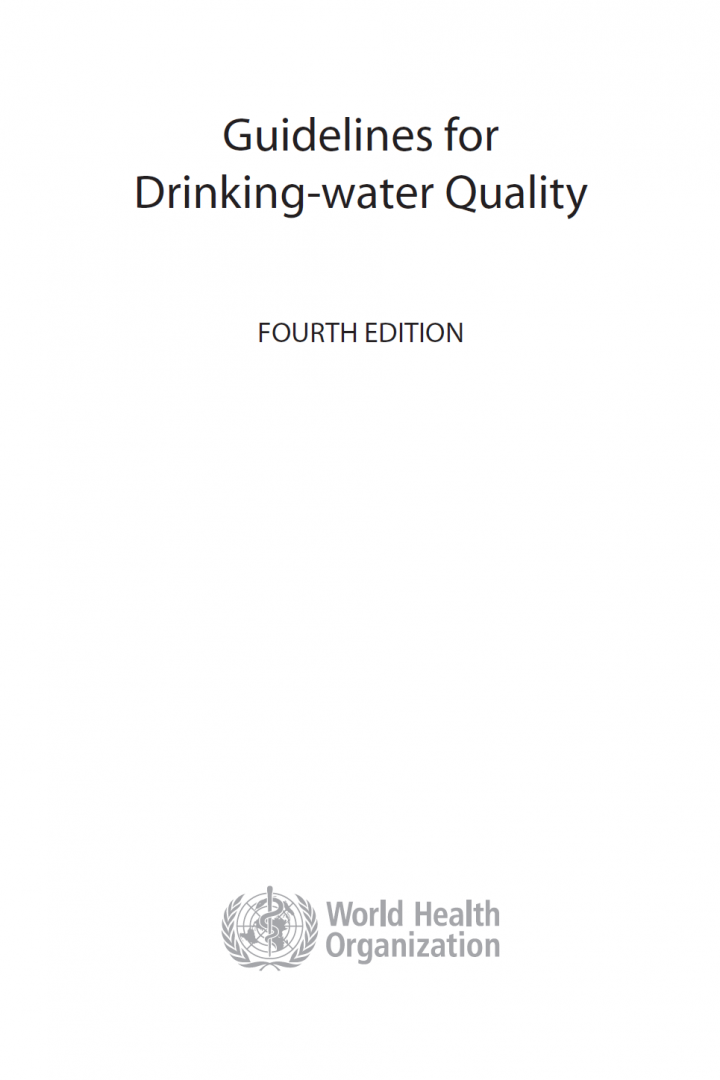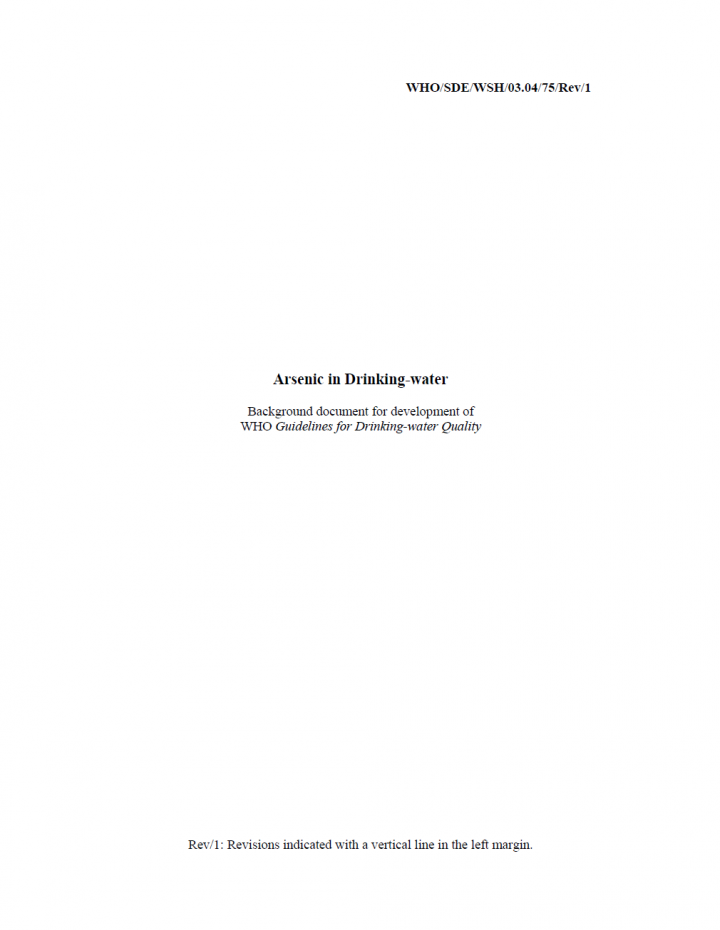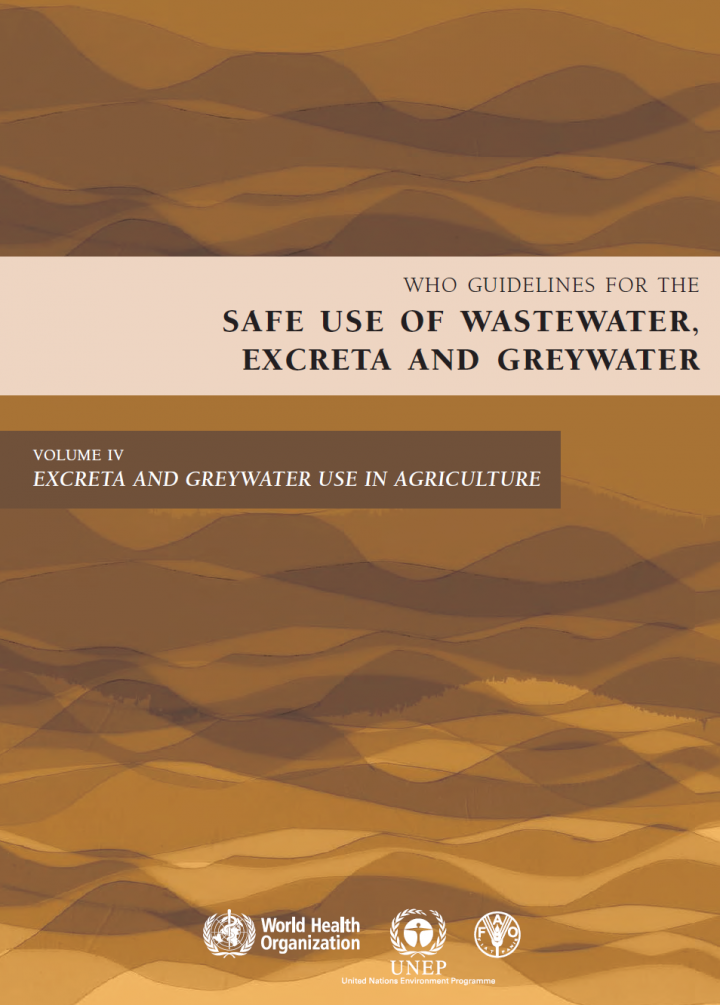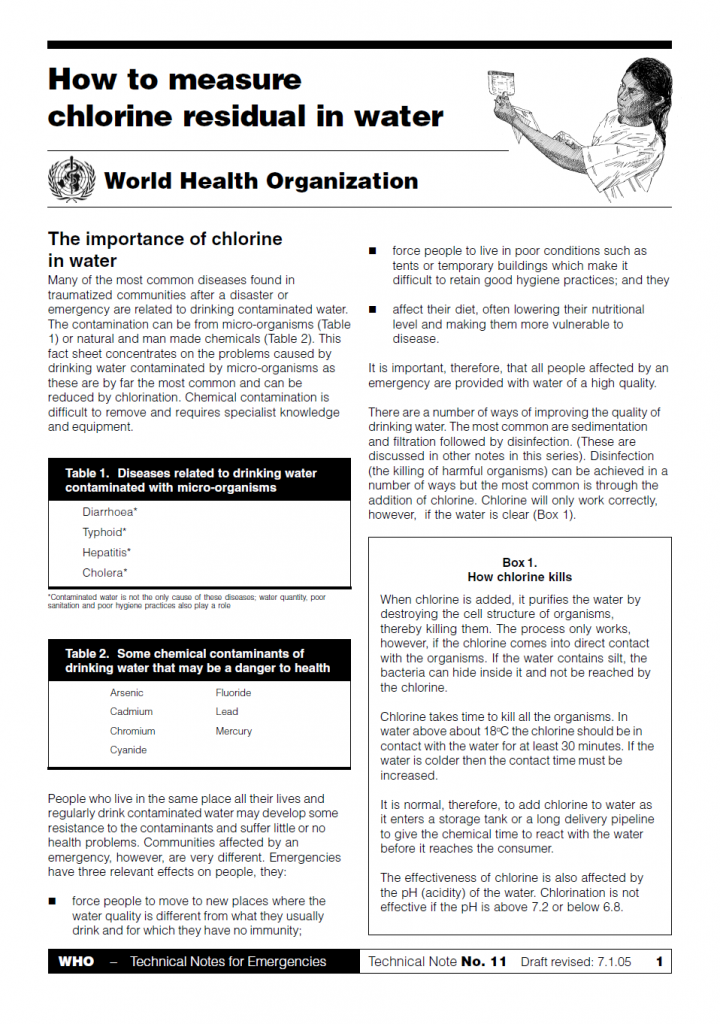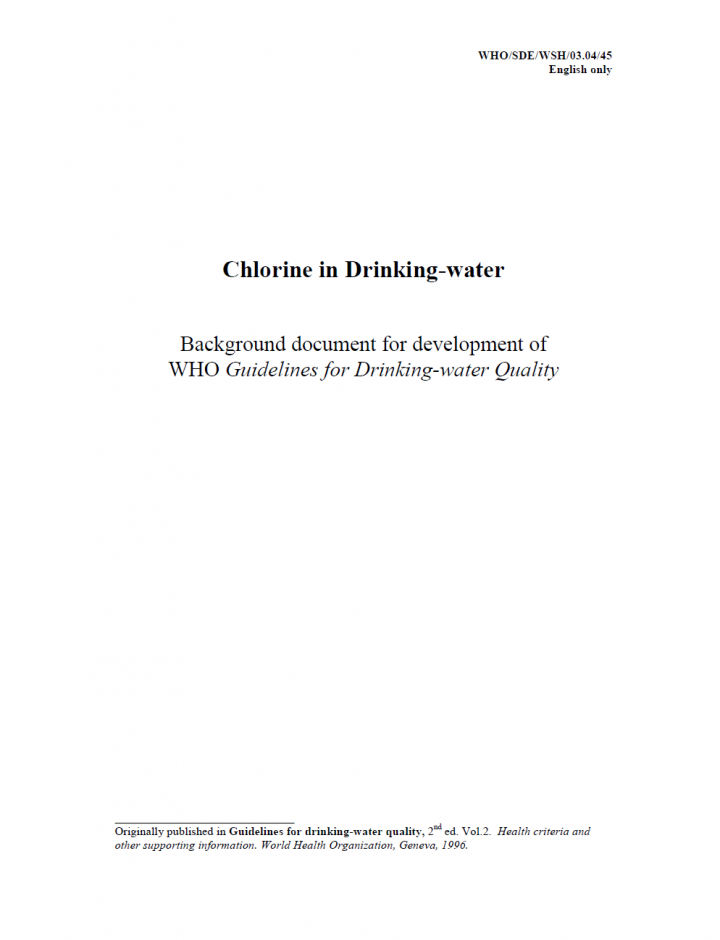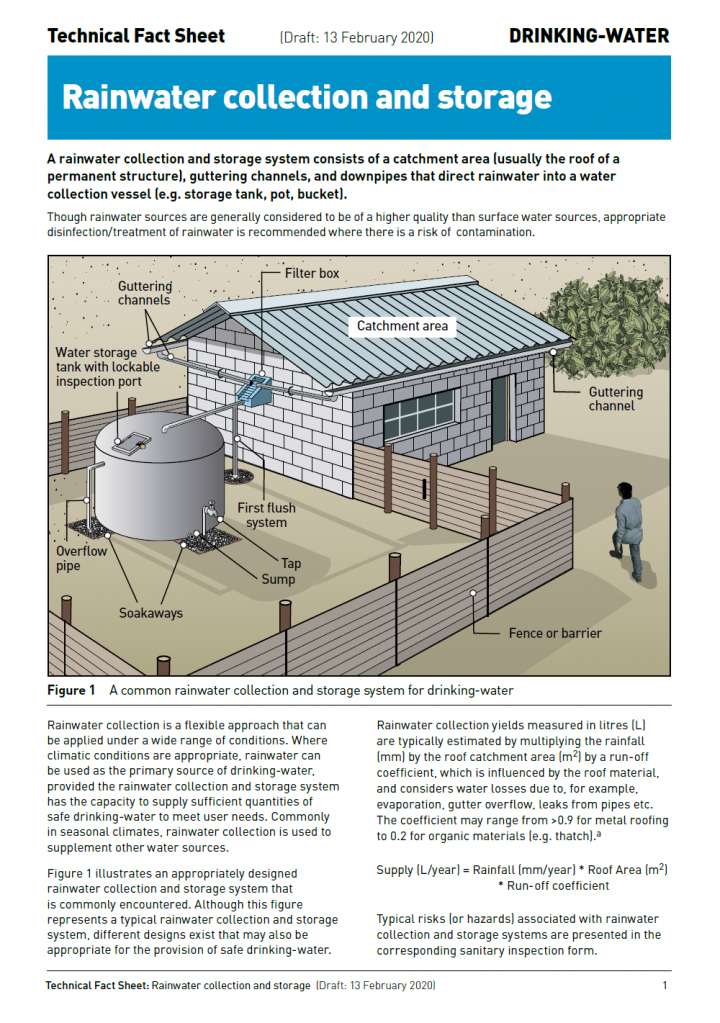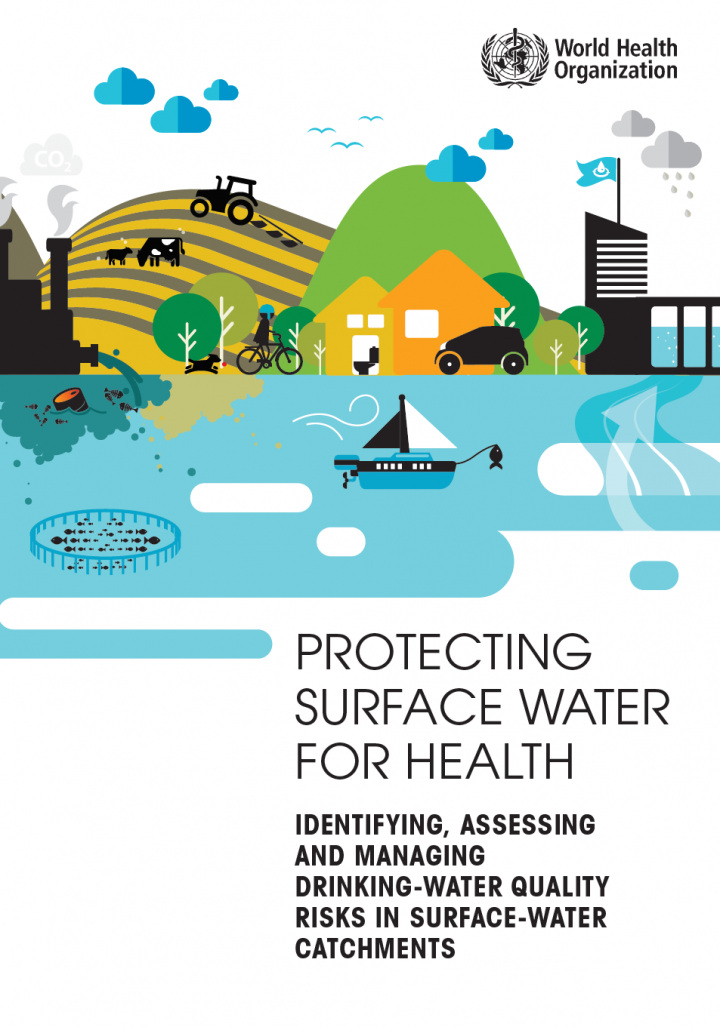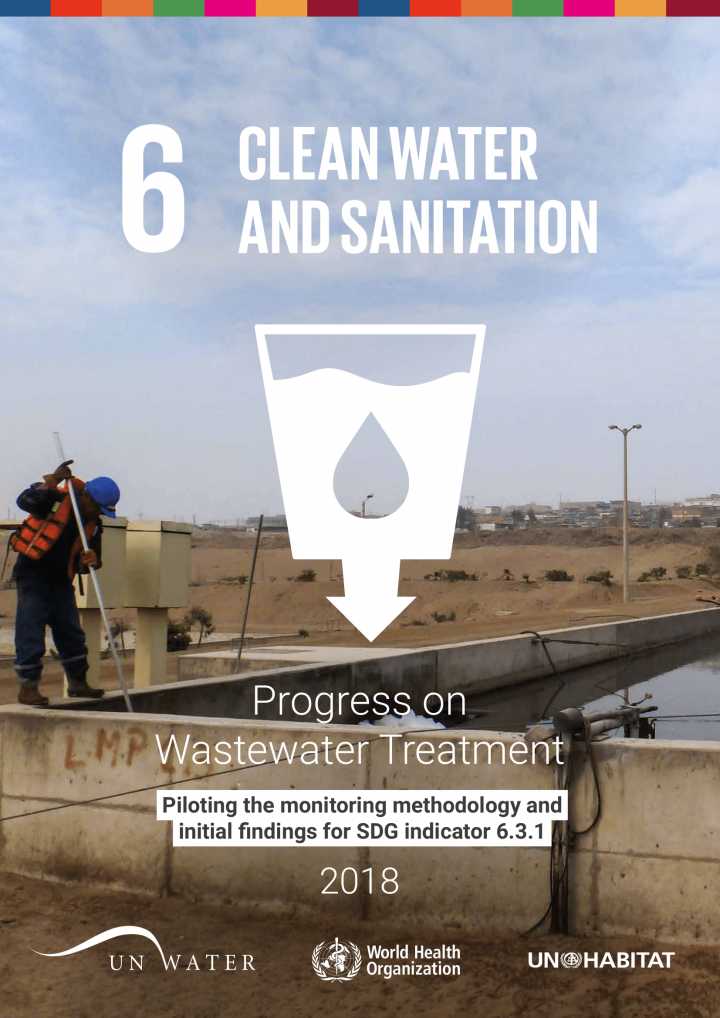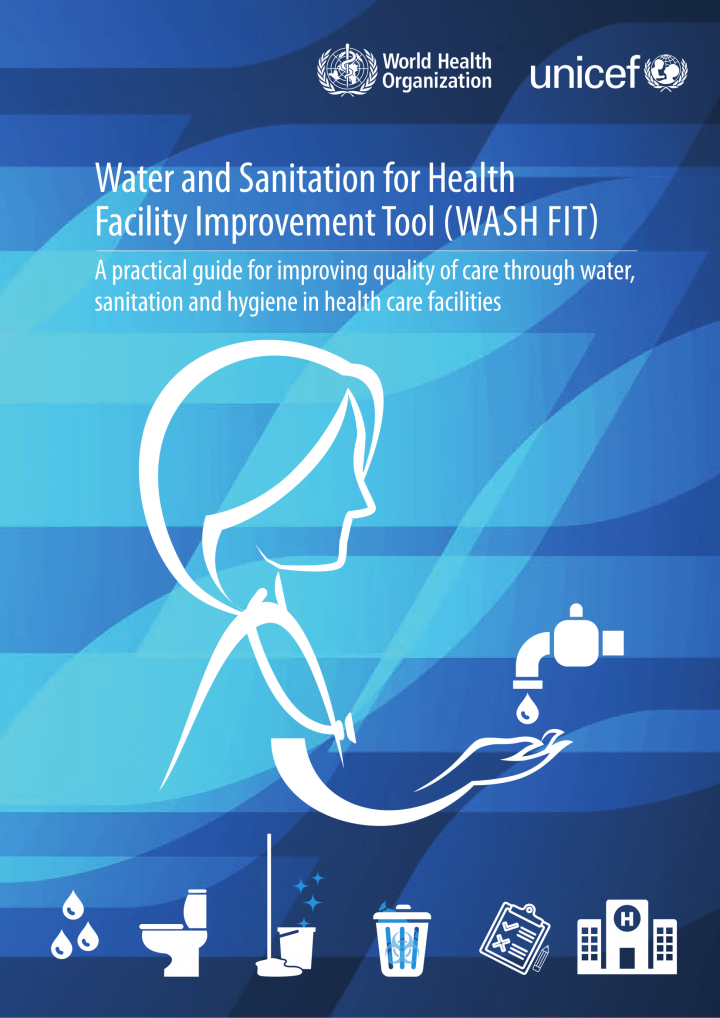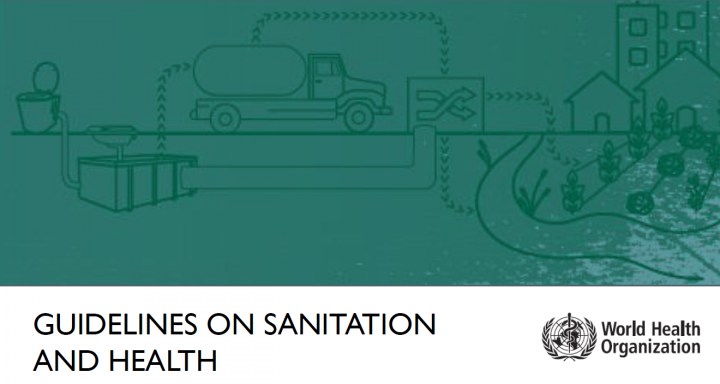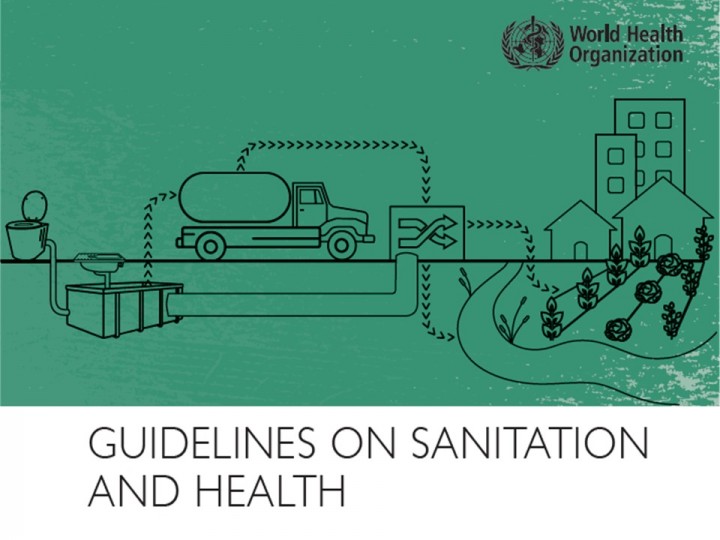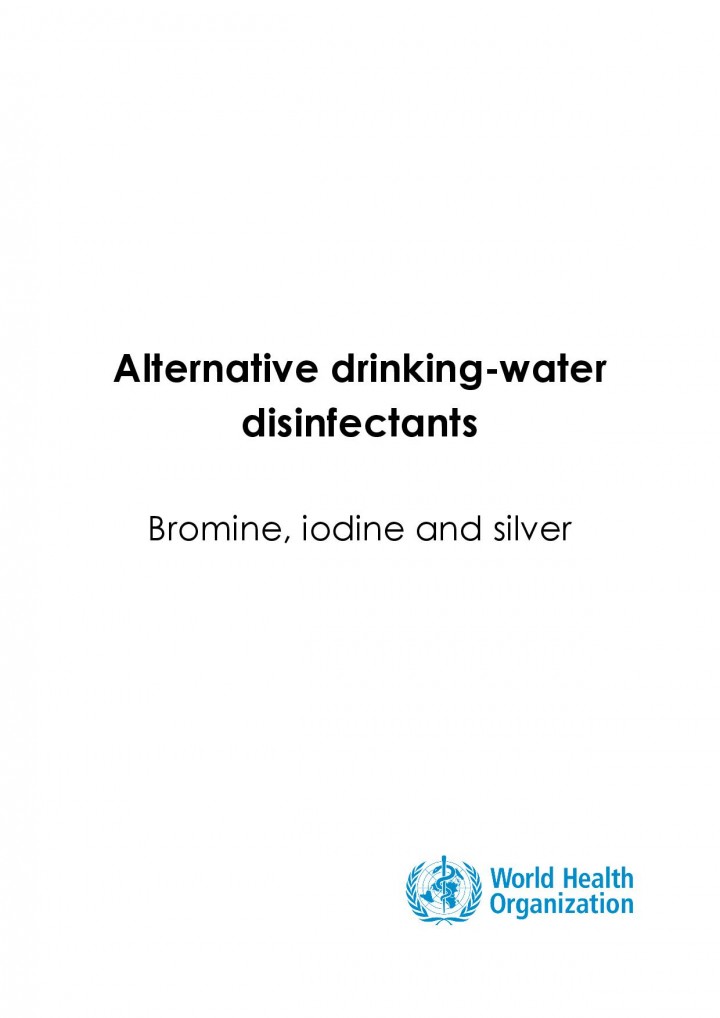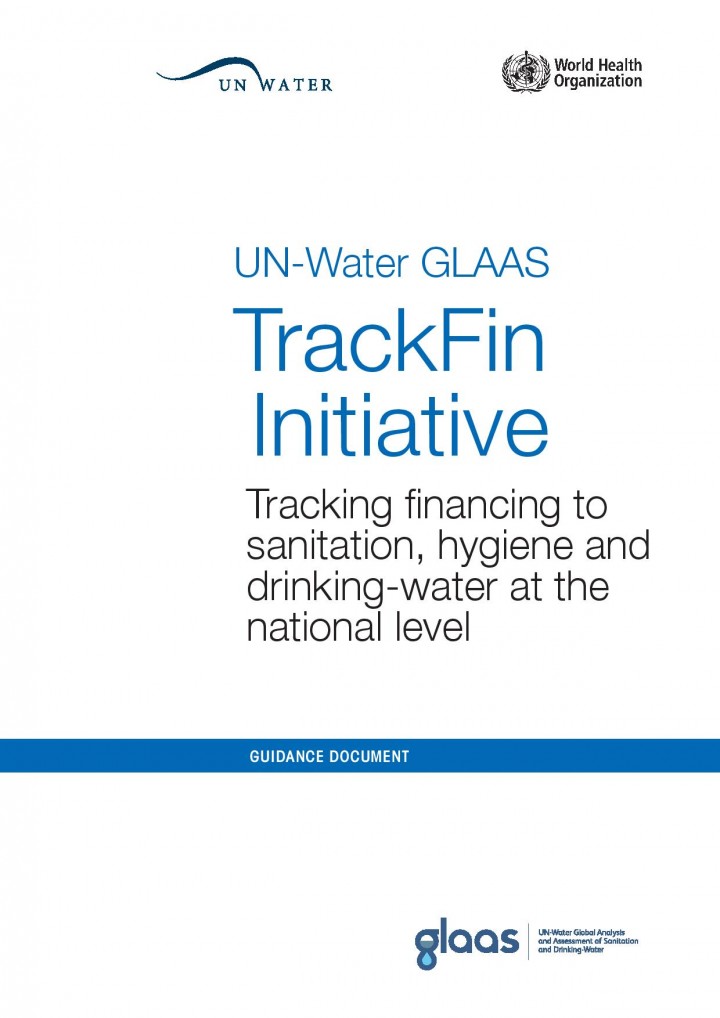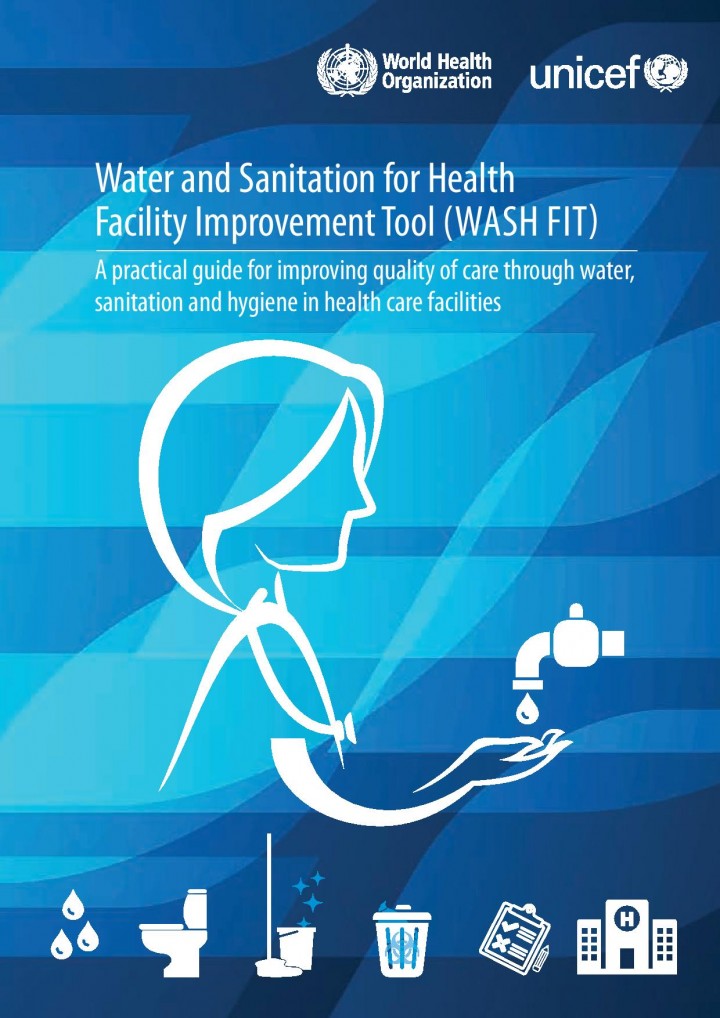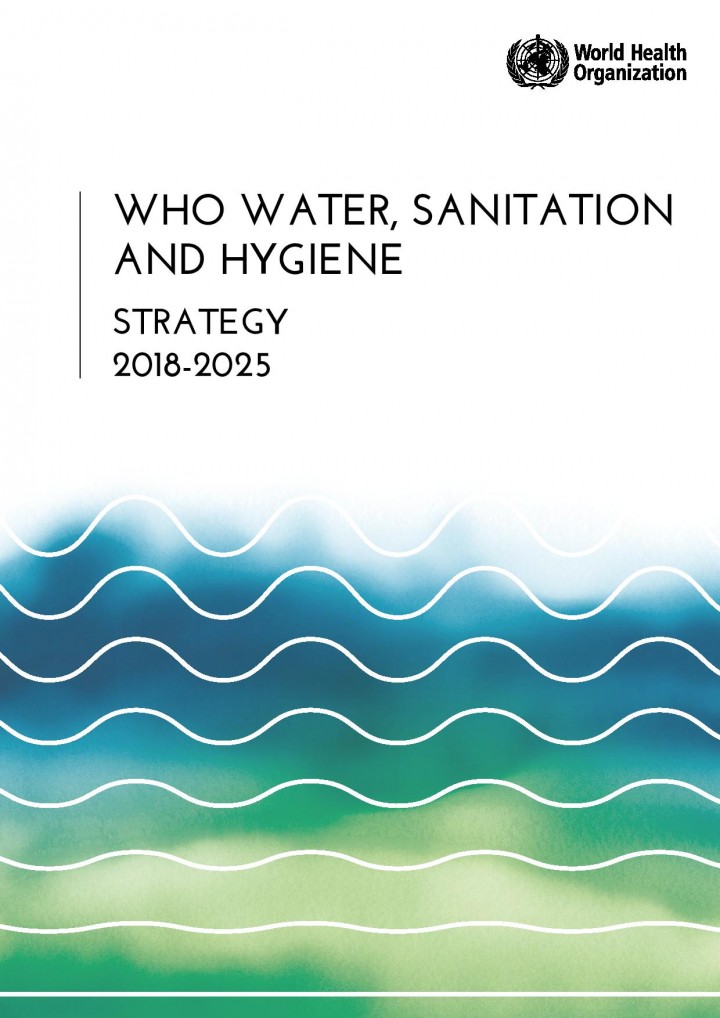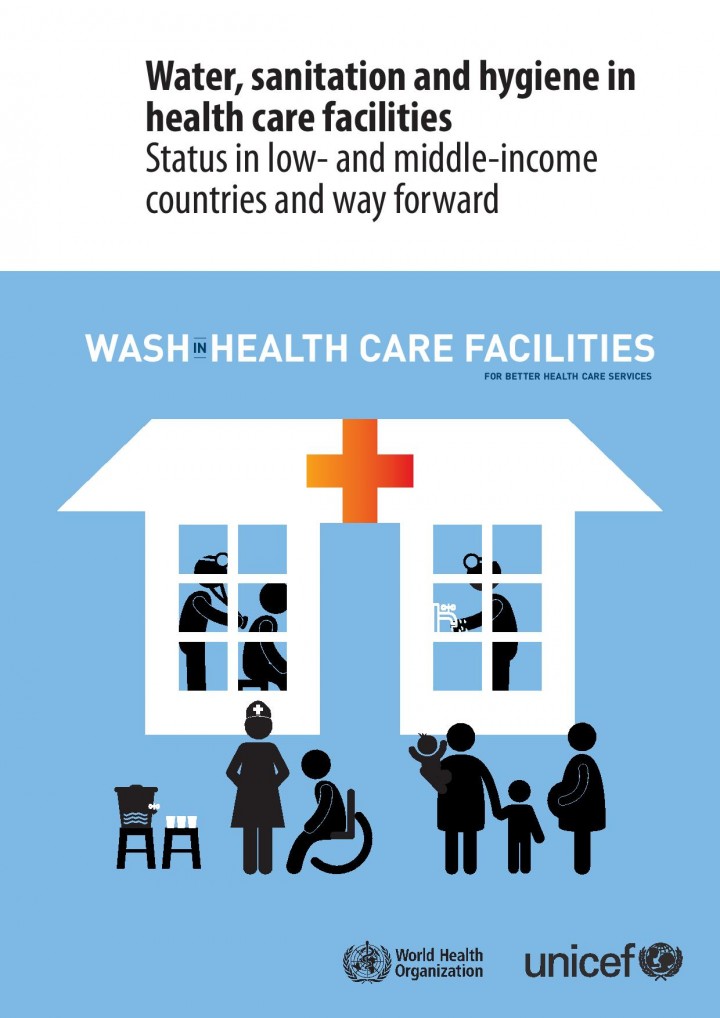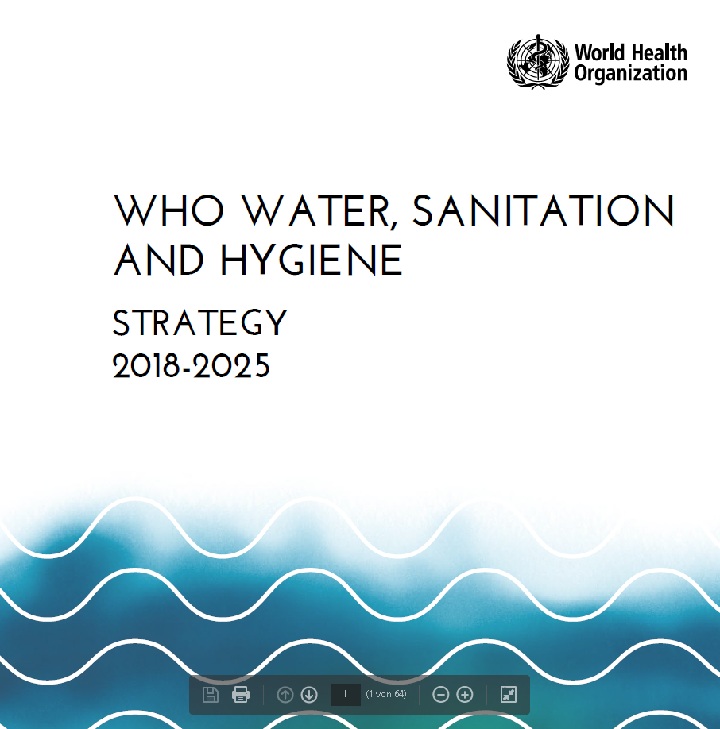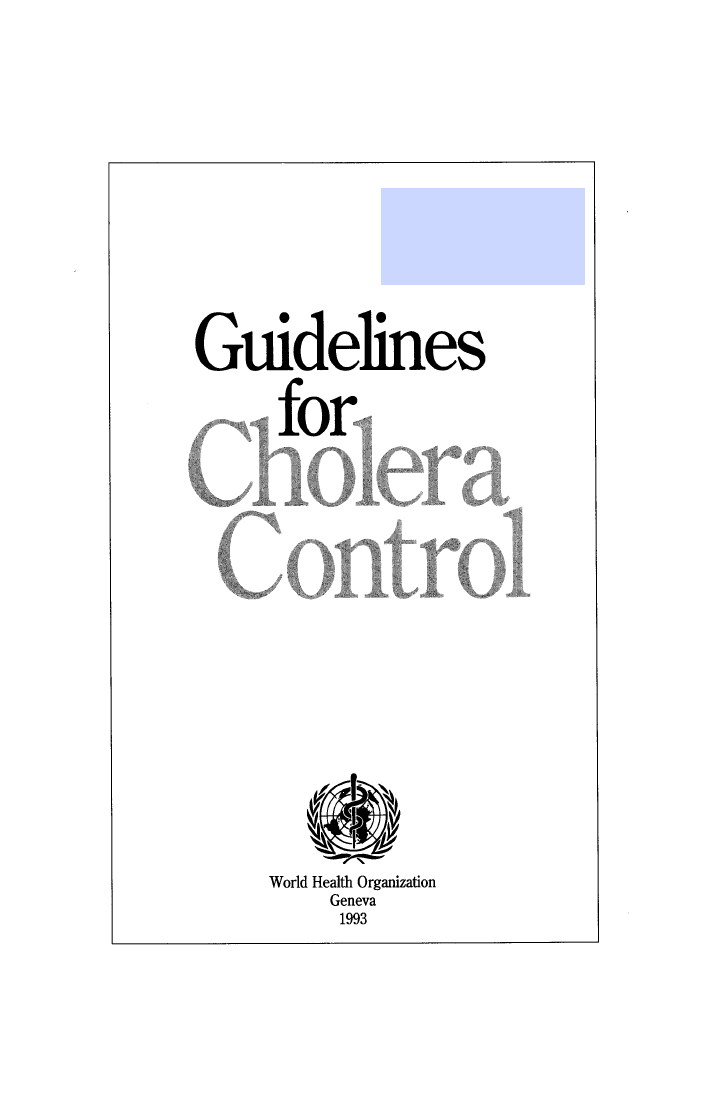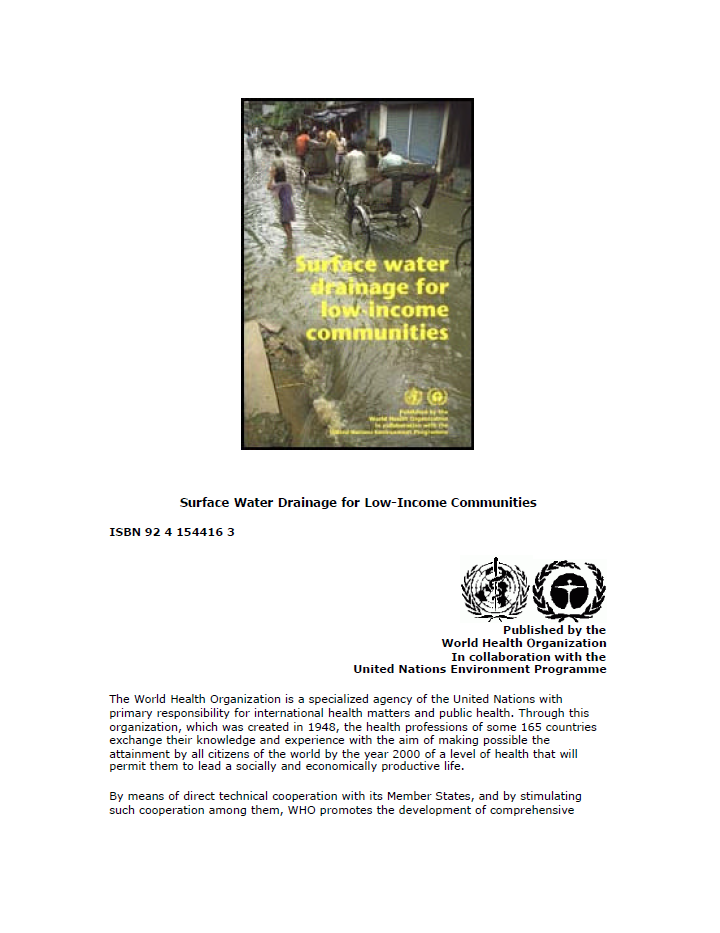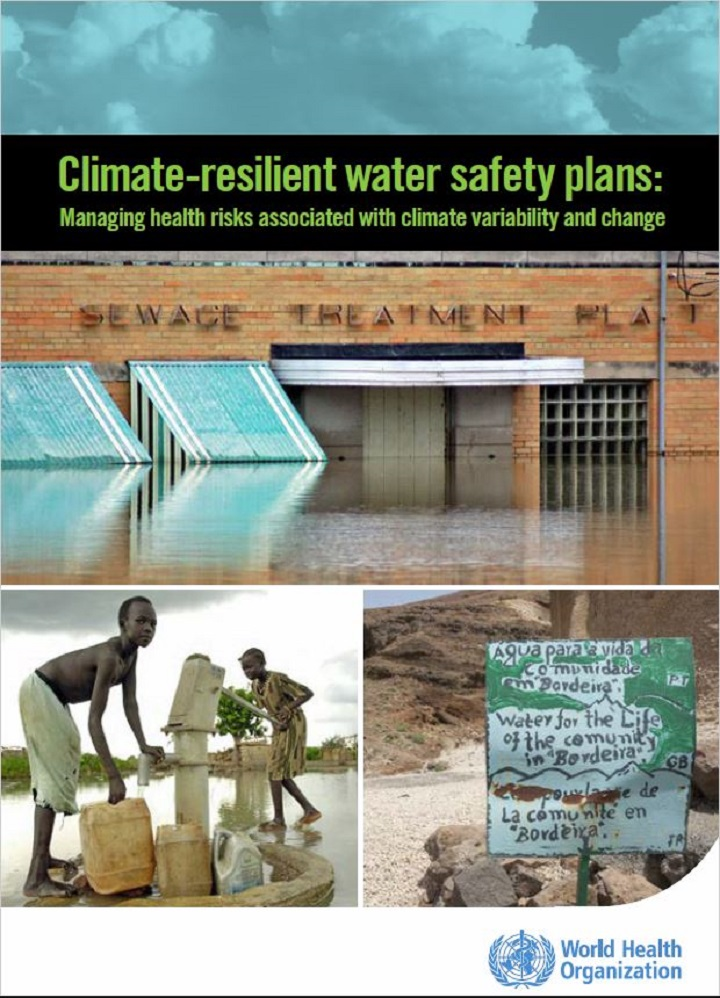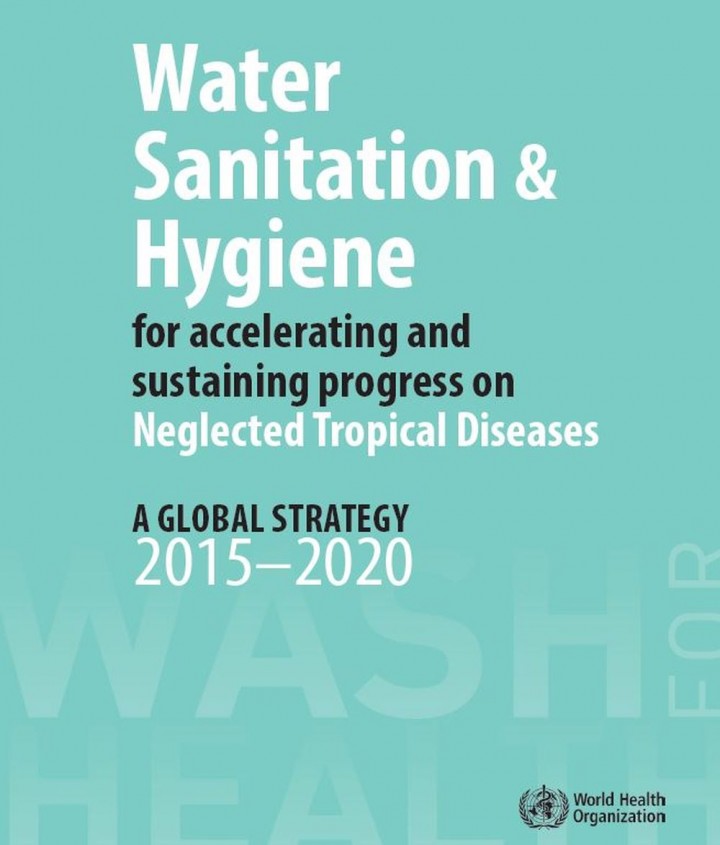Searching for information on Sanitation Workers?
The Sanitation Workers Knowledge + Learning Hub is the best source for all current news, trends, articles and updates on sanitation workers rights around the world.
The principles and practice of water safety planning are increasingly being adopted around the world as the basis for the provision of safe and clean drinking-water. This process is most pronounced in urban conglomerates where the institutional infrastructure of municipal corporations, parastatal enterprises or private utilities is conducive to their adoption.
Water safety planning has a …
WSPs are a risk-based preventative approach to most effectively protect drinking-water safety and are recommended in the WHO Guidelines for Drinking-water Quality. WSPs are now being adopted worldwide, but they are not always fully understood by all stakeholders. Face-to-face training is therefore essential to ensure globally successful WSP implementation.
The training package consists of …
This fourth edition of the World Health Organization’s (WHO) Guidelines for drinking-water quality builds on over 50 years of guidance by WHO on drinking-water quality, which has formed an authoritative basis for the setting of national regulations and standards for water safety in support of public health.
It is the product of significant revisions to clarify and elaborate on ways of …
During the preparation of background documents and at expert meetings, careful consideration was given to information available in previous risk assessments carried out by the International Programme on Chemical Safety, in its Environmental Health Criteria monographs and Concise International Chemical Assessment Documents, the
International Agency for Research on Cancer, the Joint FAO/WHO …
Volume 4 of the Guidelines for the safe use of wastewater, excreta and greywater provides information on the assessment and management of risks associated with microbial hazards. It explains requirements to promote the safe use of excreta and greywater in agriculture, including minimum procedures and specific health-based targets, and how those requirements are intended to be used. This volume …
Many of the most common diseases found in traumatized communities after a disaster or emergency are related to drinking contaminated water. The contamination can be from micro-organisms (Table 1) or natural and man made chemicals (Table 2). This fact sheet concentrates on the problems caused by drinking water contaminated by micro-organisms as these are by far the most common and can be reduced …
One of the primary goals of WHO and its member states is that “all people, whatever their stage of development and their social and economic conditions, have the right to have access to an adequate supply of safe drinking water.” A major WHO function to achieve such goals is the responsibility “to propose regulations, and to make
recommendations with respect to international health matters …
This sanitary inspection package for a rainwater collection and storage contains:
1. Sanitary inspection form
Checklist of observational questions to support the identification of risk factors and prompt corrective action.
2. Technical fact sheet
Basic technical information to support the completion of the sanitary inspection form.
3. Management advice sheet
Operations and maintenance …
Safe drinking-water is essential to sustain life – it is the basis for human health, survival, growth and development. Therefore, access to safe drinking-water is a basic human right. Recognition of this right contributes to the survival of human beings and disease prevention, because water is used not only for drinking, but also for many other purposes such as hygiene, food production, …
The SDG 6.3.1 indicator report on “proportion of wastewater safely treated” describes the monitoring methodology developed and tested in consultation with wastewater experts, national sector experts and statistical authorities and harmonized with the International Recommendations for Water Statistics and established regional monitoring mechanisms.
The report also presents preliminary …
Safe health care waste management, including segregation, collection, transport, treatment and waste disposal, is fundamental to wider efforts to provide safe and quality health care. Safe health care waste management practices also support a number of the UN Sustainable Development Goals (SDGs), including Goal 3 on health, Goal 6 on safely managed water and sanitation, Goal 7 on climate change …
UNICEF and World Health Organization (WHO) have collaborated to produce the WASH FIT tool in Arabic, English, French, and Spanish.
This tool is designed for use by health care facility managers and health care staff e.g., the chief medical officer, financial administrator, doctors, nurses and persons in charge of managing water and waste. The WASH FIT guide contains practical step-by-step …
Safe sanitation is essential for health, from preventing infection to improving and maintaining mental and social well-being. The lack of safe sanitation contributes to diarrhoea, a major public health concern and a leading cause of disease and death among children under five years in low- and middle- income countries; poor sanitation also contributes to several neglected tropical diseases, as …
Disinfection of water has greatly contributed to reducing risks to public health from microbiologically contaminated drinking water.
Numerous disinfection techniques have been developed over the centuries that are used in a wide range of applications, ranging from large and small public drinking-water plants to point-of-entry and point-of-use (POU) treatment devices.1 Although chlorine has been …
Effective financing for drinking water, sanitation, and hygiene (WASH) are essential for the sustainable delivery of services. The UN-Water Global Analysis and Assessment of Sanitation and Drinking-Water (GLAAS) indicate that there are substantial gaps in our understanding and tracking of financing to the WASH sector. Financial reporting is often insufficient to enable sound, evidence-based …
WASH in health care facilities is a fundamental prerequisite for achieving national health goals and Sustainable Development Goals (SDGs) 3 (ensure healthy lives and promote well-being) and 6 (ensure availability and sustainable management of water and sanitation). Safe water, functioning hand washing facilities, latrines, and hygiene and cleaning practices are especially important for improving …
The WHO WASH Strategy has been developed in response to Member State Resolution WHA64.4 and the 2030 Agenda for Sustainable Development and its Sustainable Development Goals (SDGs). It also takes on board the need for progressive realization of the human rights to safe drinking-water and sanitation, adopted by the UN General Assembly in July 2010. The 2025 end date of the Strategy is proposed to …
This report presents, for the first time, a global assessment of the extent to which health care facilities provide essential water, sanitation, and hygiene (WASH) services. Drawing on data representing 66,101 facilities in 54 low- and middle-income countries, the report concludes that 38% of facilities lack access even to rudimentary levels of WASH. When a higher level of service is factored in, …
WHO’s 13th General Programme of Work (GPW) 2019–2023 describes how the Organization’s work will contribute to the health of three billion: one billion becoming “healthier populations” through multisectoral actions and addressing environmental risk factors and health determinants; one billion benefiting from better emergency preparedness and response; and one billion with universal …
These guidelines have been prepared by the Global Task Force on Chlore Control of the World Health Organization to help managers of national diarrhoeal disease control programmes and others responsible for implementing cholera control activities. They may also be useful to international, bilateral, and non-governmental agencies in deciding on appropriate means of assiting countries to control …
Many low-income communities in developing countries consider stormwater dra inage to be their most urgent need as far as urban infrastructure is concerned. This is partly because their houses are often built on unsuitable land. In areas sufficiently close to the city centre for the journey to work to be affordable, land prices tend to be beyond their means. The only land they can afford, or on …
Medium- and long-term planning for an adequate and safe supply of drinking-water should be set in the context of growing external uncertainties arising from changes in the climate and environment. The water safety plan (WSP) process offers a systematic framework to manage these risks by considering the implications of climate variability and change.
This document provides guidance on how …
Water, sanitation and hygiene (WASH) are critical in the prevention and care for all of the 17 neglected tropical diseases (NTDs) scheduled for intensified control or elimination by 2020.
Provision of safe water, sanitation and hygiene is one of the five key interventions within the global NTD roadmap. Yet to date, the WASH component of the strategy has received little attention and the …



